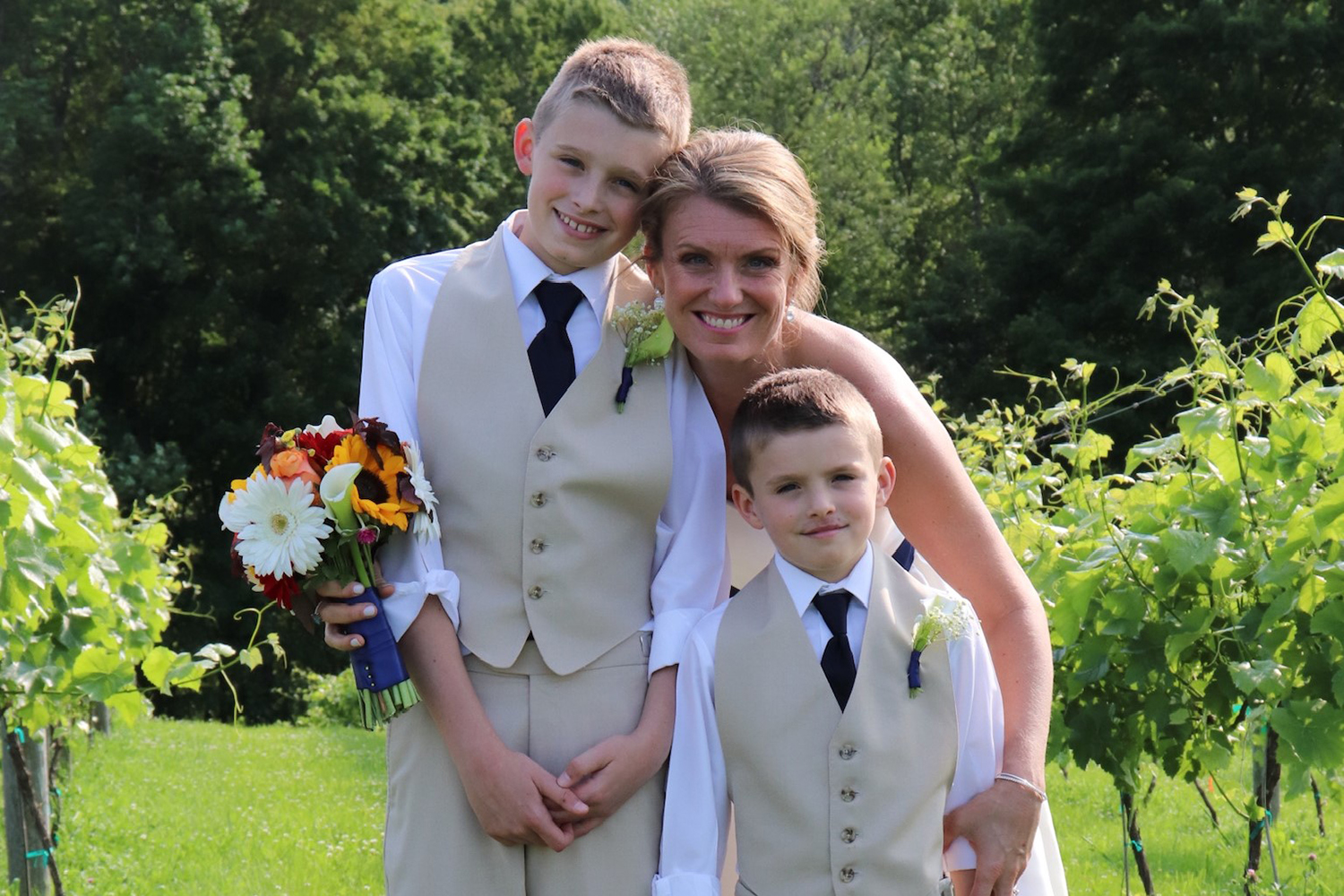Associate Professor of Kinesiology Stephanie Singe was a doctoral student when she hit a critical moment in her professional development. As a teaching assistant, she heard many of her students share their thoughts of leaving the athletic training field upon graduating. When she talked with her students about their reasons, some patterns emerged.
“A lot that came up,” said Singe in a 2018 interview with the Journal of Athletic Training, “was ‘I can’t have a family,’ ‘I’m not going to have enough time to do the things I want to if I’m going to be an athletic trainer full time.’” Singe was well aware of the demands of the profession of athletic training; at the time, she was working long hours as an athletic trainer in addition to pursuing a Ph.D. The demands of the job were making it difficult for some of her students to balance their work and personal life, so in response, Singe decided to turn the focus of her dissertation to work-family conflict for athletic trainers.
Singe joined the Department of Kinesiology in 2006. Since then, she has studied many aspects of the complex construct of work-life balance, including factors that facilitate and inhibit a balanced lifestyle, as well as the outcomes of work-life balance. Singe is also the lead author of the Journal of Athletic Training’s official position statement on work-life balance, a review of literature in the field on work-life balance and a call to action on prioritizing a healthy work-life balance for athletic trainers. It is the first position statement for the journal that focuses on athletic trainers themselves instead of on the athletic trainer’s clients.
The need for the kind of research that focuses specifically on athletic trainers is clear. The job can be demanding. Athletic training is a mix of triage (athletic trainers are the ones who rush onto the court or field when a player is injured), diagnosis, athlete management and communication with medical and non-medical professionals. Athletic trainers can be away from home for long periods of time when a team travels, and they often work extra hours in season. Although athletic trainers traditionally work in sports, they are increasingly employed in the military, outpatient clinics and physicians’ offices. Ensuring a healthy work-life balance is critical.
What is work-life balance, exactly? Simply put, it’s managing the roles you play in your life, whether they be work related, family related or personal. What balance isn’t, says Singe, is equity. “A lot of people confuse the term ‘balance’ with ‘equity.’” Equity means you dedicate equal time to different tasks, but as Singe explains, you’ll never spend the same amount of time working, learning, reading a book or spending time with family and friends. “Equity is not a good term. But balance really means that you have the freedom to do the things that make you happy.”
There are many factors that affect work-life balance, and Singe and other researchers see those factors as playing out on multiple levels. There’s the level of the individual (someone’s personality, the setting they work in), the organizational (how well someone’s employer supports them) and the sociocultural (gender stereotypes, societal expectations about the roles someone plays).
Singe’s initial motivations to study work-life balance were related to promoting retention and creating awareness of the profession. Says Singe, “I do think that I wanted inspire others to stay in the field, find their place within it, as it’s diverse, and then of course keep more women in the field.” Over the years, she has seen the positive impact her work has had on others. “I’ve had many students come back to me and tell me they were appreciative of the conversations they had with me about finding a balance.” A friend of Singe’s, after implementing some of her suggestions on work-life balance, said that Singe that she shown her how a female can balance her career with being a phenomenal mom. Says Singe, “Receiving this type of feedback is unexpected, yet rewarding as it reminds me that my research is helping others be successful in finding their own path.
Singe has taken her own research to heart too. She says that engaging in all the roles in her own life has made her better in each of them. “I actually feel like I’m a better mom, I’m a better runner, I’m a better youth sport coach, I’m a better faculty member because I have all of these different roles.” But that can only happen if you take care of yourself. “When I take care of myself,” she says, “I’m a better human being in all the roles in my life.”
Singe’s research supports people who dedicate their careers to supporting others. “Athletic trainers are notoriously known as being conscientious individuals who are selfless. They often want to do the right thing, and they want to do the right thing by others, and they often put themselves last.” Singe’s research helps make sure that athletic trainers are being put first.



